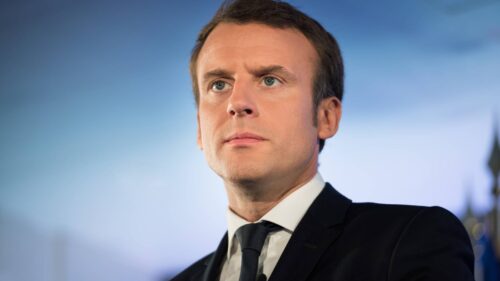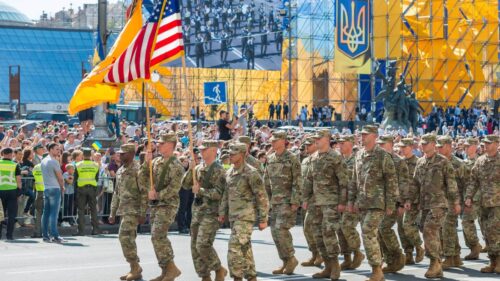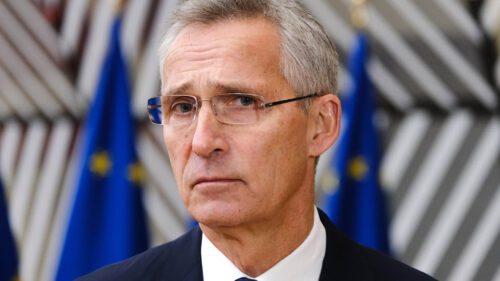French President Emmanuel Macron has taken an unusually aggressive position on the Russia-Ukraine war. On February 26, Macron hinted at the possibility of NATO troops entering Ukraine by stating that “nothing should be ruled out.” On Thursday evening, March 14, he had the opportunity to explain his position at length in a 40-minute televised address.
Macron’s shift from peacemaker to critic highlights his recent aggressive rhetoric. While he depicts Russian control of Ukraine as an “existential threat” to Europe, this seems an exaggeration. The real existential threat lies with Ukraine itself. NATO’s proximity to Russia’s borders may make Russia feel threatened, but it is unjustified to say that France faces an existential threat from Russia. Unlike the Cold War, when both NATO and the Soviet Union had nuclear arms pointed at each other, the likelihood of a direct conflict is not nearly as high.
This kind of unrealistic rhetoric is a sign of the level of hyperreality that our discourse has reached. Nowadays, leaders frequently use the term “existential threat” to mobilize the population against whatever problem they see as most politically pressing.
Another sign of this lack of realism is that Macron managed to speak about the war for 40 minutes without mentioning the United States even once. Any conflict that ranks as “existential” in Europe would inevitably draw in the US. Macron’s failure to acknowledge this key factor shows how little connection there is between his rhetoric and the situation on the ground.
Doubtlessly, Europeans are anxiously looking forward to the November 2024 US presidential election. Macron is putting on a stern face now, but the truth is that Europeans do not know what they will do if former US president Donald Trump wins, after which he may withdraw US support from Ukraine.
Macron’s 2024 Re-Election Bid: Ukraine as a Potential Campaign Strategy
The uncertainty of the upcoming 2024 US presidential election is causing concern for Macron due to the current poll numbers, with the far-right National Rally Party polling at 31% and Macron’s party at 18%. Macron seems to believe he should focus on Ukraine as the critical issue on which to take a stand to broaden his appeal. He aims to project a sense of focus and authority within his country and throughout Europe.
Yet Macron has received backlash and mockery for his strong language and behavior. In a moment, the ever-ironic French press sniffed out his insincerity. Macron talks big but has no concrete plans for action in Ukraine.
What’s more, Macron’s recent deal with Ukrainian President Volodimir Zelensky, which he concluded without the consent of parliament, raises concerns about constitutionality. Given his desire to portray himself as a vigorous defender of democracy abroad, it is reasonable to question Macron’s commitment to democratic values at home.
[Peter Choi edited this podcast and wrote the first draft of this piece.]
The views expressed in this article/podcast are the author’s own and do not necessarily reflect Fair Observer’s editorial policy.
















Comment